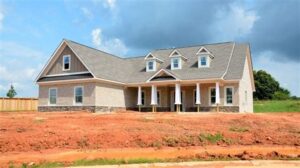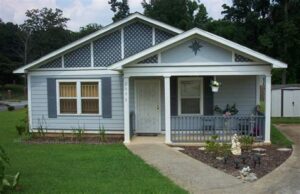Explore property boundaries, the significance of surveying, consequences of building incorrectly, legal implications, and tips to avoid costly mistakes in construction.Building a home is a dream for many, but what happens when that dream turns into a nightmare due to construction on the wrong lot? Understanding property boundaries is crucial to ensure homeowners don’t find themselves in legal and financial turmoil. Without proper surveying before construction begins, many unsuspecting property owners may inadvertently infringe on their neighbor’s land or violate zoning regulations. The consequences of building on the wrong lot can be severe, leading to costly disputes and sometimes even the demolition of structures. In this blog post, we’ll explore the legal ramifications property owners face in such scenarios and emphasize the importance of due diligence to avoid these costly mistakes. Join us as we delve into the world of property boundaries and safeguarding your investment.
Understanding Property Boundaries
When it comes to real estate, understanding property boundaries is crucial. Every piece of land comes with its own defined limits, which dictate where your property starts and ends. In many cases, these boundaries are established by legal documents such as deeds and surveys. However, misinterpretations or disputes can lead to significant consequences, especially when construction is involved.
Property boundaries are typically marked by physical features such as fences, trees, or stakes. However, it’s essential to rely on an official land survey to accurately define your lot limits. A surveyor uses precise measurements and legal descriptions to outline your property, ensuring that you know exactly what you own. This is particularly important before embarking on any construction project.
Failing to understand or misjudging these boundaries can lead to serious repercussions. If a structure is built beyond your lot lines, you may face not only hefty fines but also the potential for legal disputes with neighbors. Thus, hiring a professional to conduct a property survey is one of
Importance of Surveying Before Construction
Before undertaking any construction project, the importance of surveying cannot be overstated. Accurate land surveying is the foundation upon which a successful building project is built. It helps to define property lines, locate existing structures, and ensure that your construction adheres to local regulations.
One of the primary reasons for conducting a survey is to avoid potential disputes with neighboring property owners. By clearly understanding your property boundaries, you can prevent encroachments or disputes that may arise regarding land use. A pre-construction survey provides a clear record that can be referenced should any legal issues occur in the future.
Moreover, a thorough survey can reveal important information about the terrain, such as topography and soil type. This data can affect not only the design of the structure but also its stability and longevity. Investing in a professional land surveyor can save you from costly mistakes and delays down the line, ensuring th
Consequences of Building on the Wrong Lot
Building on the wrong lot can lead to a myriad of consequences that can affect property owners both financially and legally. By neglecting the importance of accurate surveying and understanding property boundaries, individuals may find themselves embroiled in unexpected complications. Here are some of the most significant repercussions of such a mistake:
- Financial Losses: Constructing a house on a lot that does not belong to you can lead to significant financial repercussions. You’ll not only waste resources on construction but may also face the costs of demolishing the structure.
- Legal Issues: The owner of the lot may claim ownership rights, potentially leading to a lawsuit. This legal entanglement can be both time-consuming and expensive.
- Zoning Violations: If the lot is not properly zoned for the structures you wish to build, you may face fines or be ordered to halt construction altogether, resulting in lost time and investment.
In many cases, property owners find out about their mistake only after significant investments have already been made in materials and labor. This can lead to feelings of frustration and disappointment, but it also underscores the need for careful planning.
Moreover, building on the wrong lot can cause property disputes with neighbors, which can further complicate the situation. Such disputes often arise from encroachments or misunderstandings about property lines, making it crucial for homeowners to conduct thorough title searches and land surveys prior to construction.
In conclusion, the consequences of building on the wrong lot can be extensive and costly. To avoid such pitfalls, homeowners must prioritize due diligence by engaging in proper surveying and understanding local zoning laws before proceeding with any construction project.
Legal Ramifications for Property Owners
When a house is built on the wrong lot, the repercussions can extend far beyond mere inconvenience. Property owners may face significant legal ramifications that can result in costly litigation, property loss, or even criminal charges. Understanding these potential consequences is essential to avoid slipping into a complicated legal quagmire.
One of the most immediate concerns is the potential for zoning violations. If a property owner constructs a building on a lot that is not designated for residential or commercial use, local authorities can impose fines or mandate the removal of the structure. Moreover, any improvements made on the wrong parcel may not be recoverable, which could result in substantial financial loss.
Additionally, property owners who encroach on neighboring lots could be subject to lawsuits for trespass. This can lead to a court order requiring the removal of the encroaching structures. Failure to comply may result in further legal action, including potential damages and injunctions. Navigating these legal waters becomes even more complex if there are disputes regarding easements, land use rights, or historical property claims.
| Legal Implications | Consequences |
|---|---|
| Zoning Violations | Fines; removal of structure |
| Trespass Lawsuits | Mandatory removal; damages |
| Easement Disputes | Legal fees; potential loss of land |
In the most severe cases, building on the wrong lot could lead to criminal charges if fraudulent intentions are suspected in the acquisition or development of the property. Overall, these legal ramifications highlight the critical importance of conducting thorough due diligence before starting any construction project. Proactively addressing property boundaries and zoning laws can help safeguard owners against these potential pitfalls.
Avoiding Costly Mistakes Through Due Diligence
To avoid the costly mistakes that often stem from misunderstandings about property ownership, conducting thorough due diligence is essential. This process includes reviewing property records, verifying zoning regulations, and confirming boundary lines prior to any construction. Neglecting these steps can lead to significant issues down the line.
One of the most critical aspects of due diligence is acquiring a property survey. A survey not only delineates the property boundaries but also highlights any easements or encroachments that may impact your use of the land. Missing these details could result in building structures too close to property lines or even on adjacent parcels, leading to potential legal disputes.
Moreover, it’s advisable to consult local authorities regarding zoning laws and building codes that could affect your plans. This will help you understand any restrictions related to setbacks, lot coverage, and the types of structures allowed. The more informed you are, the better equipped you’ll be to make decisions that protect your investment and prevent any missteps that could prove to be financially burdensome.
Frequently Asked Questions
What are the possible consequences of building a house on the wrong lot?
Building on the wrong lot can lead to legal disputes, financial losses, and the need for costly relocation or demolition.
How can someone ensure they are building on the correct lot?
To ensure the correct lot is used, one should verify property boundaries through a survey, check title deeds, and confirm zoning regulations with local authorities.
What should homeowners do if they realize their house is on the wrong lot?
Homeowners should consult with a real estate attorney to explore options such as negotiating with the rightful owner or pursuing legal remedies.
What are common reasons for a house being built on the wrong lot?
Common reasons include miscommunication between contractors, lack of adequate surveys, or misunderstandings regarding property boundaries by the homeowner.
Can neighbors object if someone builds on the wrong lot?
Yes, neighboring property owners may file complaints or take legal action if a house is built on the wrong lot, especially if it impacts their property rights.
What are the potential costs associated with resolving a wrong lot situation?
Costs can include legal fees, potential fines, demolition or moving expenses, and any lost investments in the property.
How can local governments help prevent issues with building on the wrong lot?
Local governments can implement stricter zoning regulations, require accurate surveys for building permits, and provide better public access to property information.





